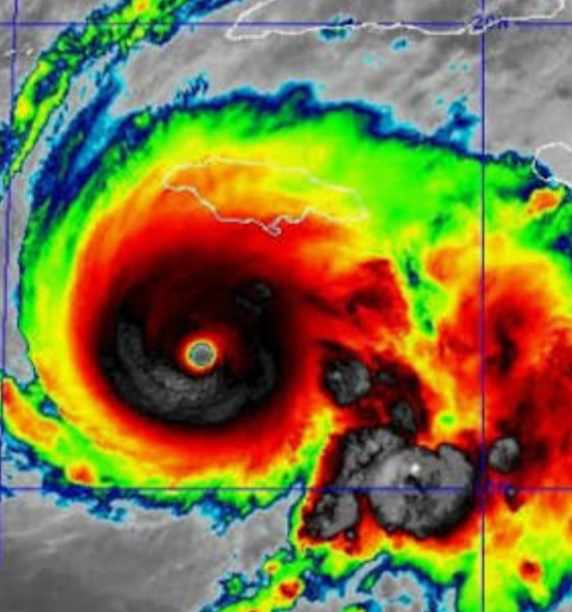As Hurricane Melissa tore through the Caribbean, leaving catastrophic damage across Jamaica, Cuba, and Haiti, another storm quietly emerged online. While emergency crews and volunteers mobilized to bring real aid, scammers began building a digital disaster of their own.
 Within hours of the hurricane’s landfall, fake donation sites, cloned charity pages, and fabricated images began to circulate across social media. Criminals quickly realized that human compassion could be turned into profit, exploiting the chaos and confusion for financial gain.
Within hours of the hurricane’s landfall, fake donation sites, cloned charity pages, and fabricated images began to circulate across social media. Criminals quickly realized that human compassion could be turned into profit, exploiting the chaos and confusion for financial gain.
HOW THE SCAMS WORK
The most common frauds involve fake donation websites that closely imitate official government or charity portals. These sites often use misleading web addresses designed to appear trustworthy, tricking generous donors into sending money directly to criminals.
Other scams spread through social media posts or private messages, claiming to collect funds for relief efforts. Many of these appeals feature emotional stories, photos, or videos of devastation that are entirely fabricated or taken from unrelated disasters.
A growing number of scammers also pose as government officials or aid coordinators, offering emergency payments or compensation in exchange for personal information or small “processing” fees. Once the information is submitted or the payment is made, the scammer vanishes.
THE DIGITAL FLOOD OF FAKE VIDEOS
A new and dangerous development in these scams involves the use of artificial intelligence to generate realistic but false videos. Clips depicting flooded airports, destroyed hospitals, or wild animals swimming through city streets have spread widely, misleading millions of viewers.
The purpose of these false videos is not only to go viral but also to draw attention toward fraudulent donation links or online campaigns. These fabrications blur the line between truth and fiction, making it more difficult for the public to identify legitimate information during emergencies.
THE HUMAN COST OF DIGITAL GREED
The impact of these scams goes far beyond stolen money. They undermine trust in legitimate relief efforts and slow down the flow of aid to those who truly need it.
Survivors in hurricane-affected areas already face immense challenges, from housing loss to lack of food and medical care. When fraudulent campaigns siphon donations away from authentic charities, genuine recovery efforts are delayed.
For donors, the loss may be financial, but for victims on the ground, it can mean prolonged suffering and deeper hardship.
WHY THE SCAM SURGE IS SO SUCCESSFUL
These schemes succeed because they exploit emotion and urgency. In the wake of disaster, people feel compelled to act quickly, often without verifying the legitimacy of appeals.
Modern scammers operate with increasing sophistication. They build professional websites, use stolen branding, and employ artificial intelligence to create convincing content. They understand how to manipulate trending topics, social algorithms, and human empathy to reach vast audiences before authorities can intervene.
HOW TO STAY SAFE AND HELP RESPONSIBLY
• Donate only through verified government websites or well-established charities.
• Avoid clicking on donation links found in social media posts or private messages.
• Be cautious of emotional or time-sensitive appeals that pressure immediate action.
• Cross-check the legitimacy of donation campaigns through trusted news or government sources.
• Never send cryptocurrency or wire transfers to individuals claiming to represent aid groups.
• Report suspicious websites, emails, or social media pages to cybercrime authorities.
Hurricane Melissa revealed more than physical destruction. It exposed how easily human generosity can be twisted by deceit. Each major disaster now carries a digital aftershock, as scammers rush to exploit tragedy for their own gain.
Generosity remains humanity’s greatest strength, but it must be guided by awareness and caution. Before giving, verify the source. Before sharing, confirm the truth. True compassion demands not only empathy but also responsibility.
- Log in to post comments
